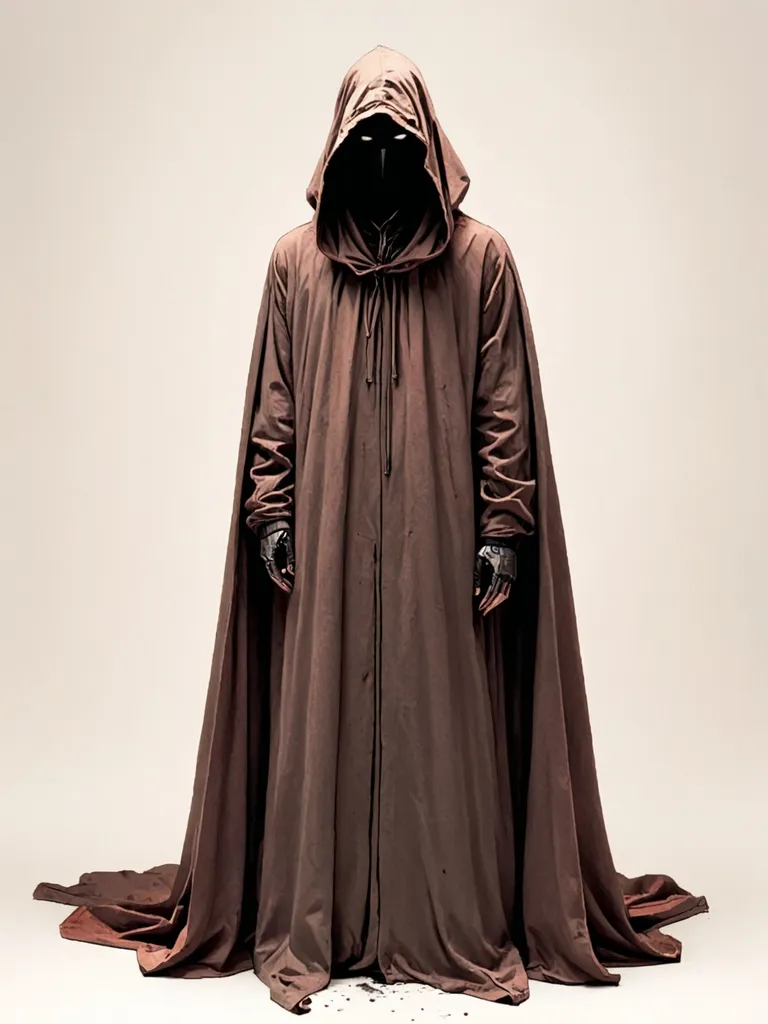Fallen (faw-luhn)
A Production
In a timeless city where twilight reigns eternal, innocence steps unwittingly into a labyrinth of shadows. A luminous figure of youthful purity, born of a realm untouched by mortal corruption, ventures into Duat-Kur—the Realm of Shadows and Reflections. This radiant being, Nourion, a stranger to cruelty and deception, descends into the heart of the enigmatic Twin Cities: Carcosa, where perception shapes reality, and Dis, a place where humanity’s darkest impulses take grotesque form. What begins as a mission to retrieve a lost soul, Adoniram, becomes an odyssey through the fragmented echoes of human despair, resilience, and redemption.
Carcosa greets the traveler with its decaying grandeur—spires of forgotten empires crumble beside ruins still glowing with the flicker of neon light. By day, the city thrums with whispers and conspiracies, its inhabitants trapped by their sins. By night, the veil thins, and the relentless horrors of Dis rise to hunt the unwary. Here, the traveler must navigate treacherous streets where reality shifts like the tides, uncovering truths buried beneath layers of perception and lies.
As the journey unfolds, the radiant youth faces a gauntlet of mortal frailties embodied by Carcosa’s inhabitants: greed, lust, cruelty, and despair. Opposing forces conspire to ensnare them—conspirators by day, predators by night, and the Arbiter of Duat-Kur, Angra Mainyu, a being of omnipresent judgment, who looms over the realm, ensuring its integrity at all costs. Yet, amidst the darkness, a faint ember of hope endures. A hidden sanctuary run by Tanochi and Balche, messengers of light offers guidance and shelter, a flickering reminder of humanity’s potential for redemption.
Through encounters with twisted shades and monstrous forms, the traveler comes to see that even in the depths of Duat-Kur, light and shadow exist in fragile balance. To save the lost soul, Teucer, the youth must do more than battle the city’s terrors—he must confront Teucer and convince this shattered sould that he is not beyond redemption.
Fallen is more than a tale of darkness and light; it is an allegory of mortal realm humanity itself, a meditation on the narratives we create and the truths we bury. With haunting visuals and a narrative as intricate as Carcosa’s twisting streets, the film explores the power of perception, the weight of judgment, and the enduring hope that even in a world of shadows, redemption is possible.
Genres
Genres
Storyboard Pitch Deck for Teaser 1
Teaser 2
Storyboard Pitch Deck for Teaser 2

Plot points/Scenes
Act I: Arrival and Discovery
The Mission: The protagonist is sent from Tír na nÓg to Duat-Kur to retrieve the sould of Teucer who has succumbed to his own self-blame over the death of his brother Ajax.
First Impressions: Awed by Carcosa’s surreal beauty, the protagonist soon realizes its fractured nature—shadows that shift unnaturally, streets that twist on their own, and whispers that sow doubt.
The Safe House: The protagonist meets the Indigenous couple, who provide guidance and explain the nature of Carcosa and Dis. They warn about the dangers of perception and the importance of uncovering the truth.
Act II: The Struggle for Truth
Encounters with Antagonists:
The Warden blocks access to key areas, trying to trap the protagonist in prisons of perception.
The Predator stalks them through Carcosa’s streets, forcing them to confront their own fear.
The Seducer tempts them with false promises, exploiting their compassion and curiosity.
The Arbiter’s Influence: The city itself begins to work against the protagonist. Streets loop endlessly, memories of Tír na nÓg fade, and doubts creep in about the target’s worth.
Finding the Target: The protagonist locates Teucer, whose reflection appears almost faceless and broken. The soul, overwhelmed by their perceived failures, resists the protagonist’s help.
Act III: Confrontation and Redemption
Into Dis: To rescue the target, the protagonist must enter Dis, where the Arbiter’s power is strongest. They face physical and psychological trials, including a confrontation with the target’s darkest traits.
The Enlightenment Moment: The protagonist “reminds” the target of their true self, using artifacts and memories to strip away the layers of perception. This act of enlightenment frees the soul from Duat-Kur.
The Arbiter’s Challenge: The Arbiter manifests, accusing the protagonist of destabilizing the realm. In a climactic confrontation, the protagonist argues that redemption and truth are worth the risk of change.
Resolution: The target is brought to Tír na nÓg, their light restored. Carcosa remains, but the protagonist’s actions leave a ripple of hope, suggesting that even the darkest places can be touched by light.
Themes

Every person carries light and dark, shaped not only by their actions but by how they are perceived.

: False narratives and biases can imprison people, but truth and compassion can set them free.

The struggle between maintaining a flawed system and risking chaos to pursue justice and redemption.

The protagonist’s journey from innocence to wisdom mirrors the target’s journey from despair to enlightenment.
Components
Goals
Primary Goal (Protagonist)
Retrieve the Rescued Soul: The protagonist must navigate Duat-Kur to locate and liberate the sould of Teucer trapped unjustly, restoring balance and perhaps proving their own worth.
Avoid Being Consumed: The protagonist must resist the temptations and dangers of Duat-Kur, including their own growing doubts and fears.
Understand Humanity’s Duality: Coming from a place of purity, the protagonist seeks to understand the gray complexities of human nature.
The Seducer: To manipulate the protagonist into surrendering their mission, trapping them in Duat-Kur.
The Predator: To destroy or consume the protagonist and any hope they bring.
The Arbiter: To maintain the integrity of Duat-Kur at all costs, even if it means sabotaging the protagonist’s efforts.
Secondary Goals
Antagonist Goals:
Hooks
Moral Quandaries
Is Redemption Always Possible?
The protagonist must decide whether some souls are beyond saving, including the rescued soul, who may have committed atrocities. Means vs. Ends:
Should the protagonist make morally questionable decisions (e.g., sacrificing other trapped souls) to achieve their goal? Who Deserves Freedom?
If liberation disrupts the balance of Duat-Kur, is saving one soul worth endangering countless others? What Defines a Person?
How much of a person’s identity is shaped by their actions versus the perceptions imposed on them by others?
The protagonist must decide whether some souls are beyond saving, including the rescued soul, who may have committed atrocities. Means vs. Ends:
Should the protagonist make morally questionable decisions (e.g., sacrificing other trapped souls) to achieve their goal? Who Deserves Freedom?
If liberation disrupts the balance of Duat-Kur, is saving one soul worth endangering countless others? What Defines a Person?
How much of a person’s identity is shaped by their actions versus the perceptions imposed on them by others?
Relations
Protagonists
Nourin is a steadfast and noble resident of Tír na nÓg, driven by a deep sense of duty to his friend Patroclus. Though removed from the suffering and chaos of the mortal world, Nourin’s compassion compels him to undertake the perilous task of venturing into Duat-Kur to rescue Teucer. As a being untouched by mortal corruption, Nourin struggles to comprehend the depths of guilt and self-recrimination that bind Teucer. However, his unyielding belief in the potential for redemption fuels his journey. Nourin wields not just strength but also empathy, navigating the shadows of Duat-Kur with the light of conviction. His mission is not only to save Teucer but to understand the fragility of humanity that shapes the realm’s darkness and not get lost in it himself.
Allies
Tenochi is a skilled and sharp-witted woman who works alongside her husband, Balche, to assist Nourin in his mission. Her keen intellect and no-nonsense attitude make her an indispensable ally in the perilous world of Duat-Kur. Tenochi has an innate ability to read situations and navigate through the chaos of the realm with precision and grace. While she offers wisdom and guidance, she is also fiercely protective of those under her care, serving as both a mentor and a shield for Nourin. Her loyalty to the cause and her husband is unshakable, and her pragmatic outlook often balances Nourin’s more inexperienced approach.
Balche is a steady and reliable presence in the shadows of Duat-Kur, working alongside his wife, Tenochi, to aid those who seek to reclaim lost souls. His physical strength is matched by his unwavering compassion, providing both protection and comfort to those who cross his path. Balche serves as a guardian of their safe haven, a refuge hidden within the chaos of the realm. His calm demeanor and deep well of patience create a sense of security for Nourin, allowing him to focus on his mission. Balche’s partnership with Tenochi reflects a bond of trust and unity, essential in a world that seeks to tear everything apart.
Neutrals/Bystanders
A figure of enduring compassion and wisdom, Patroclus appears briefly yet profoundly in Fallen. Known for his steadfast loyalty and love for Achilles, he serves as both a guide and a symbol of forgiveness. In his pivotal scene, Patroclus’ gentle nature shines as he advocates for Teucer’s redemption, reminding the protagonist and Teucer alike of the power of grace and understanding, even in the darkest of realms.
Azrael Vale is tasked with guiding the protagonist to the other realm. His silence speaks volumes, as his every gesture and movement carry weight and meaning. Azrael embodies the transition between life and death, offering quiet but unyielding support as the protagonist faces their greatest challenges. Though shrouded, his presence is one of calm assurance, bridging the gap between the living and the divine.
Competitors
Teucer is a man imprisoned by his own guilt, endlessly reliving the grief and failure that defined his mortal life. Once a celebrated archer, his skill and loyalty were overshadowed by the loss of his brother, Ajax, and the crushing weight of his father’s blame. In Duat-Kur, Teucer is a shadow of himself, chasing an illusion of Ajax in a desperate attempt to earn forgiveness. His resistance to Nourin’s mission stems not from malice but from his inability to see himself as worthy of redemption. Despite his torment, fragments of the hero he once was linger, offering hope that he can be saved—not only from Duat-Kur, but from himself.
Adversaries
The Arbiter is the heart of Duat-Kur, a shade-like entity entwined with the realm’s very existence. They are the embodiment of collective human judgment, a cosmic force shaped by millennia of decisions and perceptions of justice. Unlike the Warden or the Predator, the Arbiter operates beyond notions of morality, existing solely to uphold the equilibrium of the realm. Drawing inspiration from Angra Mainyu, they challenge the protagonist not through brute force but through a confrontation of ideals, compelling them to question the very nature of redemption, balance, and the cost of defying the natural order. The Arbiter is both guide and adversary, their presence shaping the path of every soul that dares to walk Duat-Kur’s treacherous expanse.
The Seducer is a being of cunning and adaptability, weaving a tapestry of illusions and half-truths to entangle the unwary. They embody the allure of false hope, luring their prey into a web of deceit with a beguiling grace that masks their parasitic hunger. Drawing from the essence of the Adze, they thrive on emotional vulnerability, slowly eroding their victims' will until nothing but despair remains. With an almost hypnotic presence, the Seducer sees the protagonist's resolve as both a challenge and an opportunity, working tirelessly to lead them astray from their path.
The Predator is an unrelenting force of nature, a manifestation of primal fear and the dark undercurrents of humanity’s instincts. It moves with purpose, stalking its prey with a sadistic delight, feeding on their terror and hopelessness. Its presence in Duat-Kur is a constant reminder of the brutality that lies within the human spirit, a being untethered by morality or reason. The Predator takes its cues from the Rakshasa, wielding both cunning and savagery to claim dominion over the shadows of the realm. To face the Predator is to confront the raw, unfiltered depths of human violence.
The Warden is a figure of unwavering order, the unyielding keeper of Duat-Kur's prisons and the overseer of Carcosa's unending cycles of torment. Rooted in the mythos of Mot, they symbolize decay and the inevitability of death, a grim sentinel ensuring that no soul escapes its designated fate. Their authority is absolute, their demeanor cold and impartial, reflecting the very stasis that defines Duat-Kur. To the Warden, the protagonist’s mission represents a disruption to the carefully maintained balance, a threat that must be addressed with measured precision and unwavering resolve.
Backdrops
Locations
Duat-Kur
CarcosaExcept where otherwise noted, content on this site is licensed under a Creative Commons Attribution 4.0 International license .
All text, images, maps, and code, unless stated otherwise, are copyright © 2023 - 2024 by Morgan Berry.

This is a work of fiction. Names, characters, places, and incidents are either the product of the author's imagination or are used fictitiously. All characters appearing in this work are fictitious or used fictitiously. Any resemblance to real persons, living or dead, is purely coincidental.


18+/Adult Theme or Images


























































































